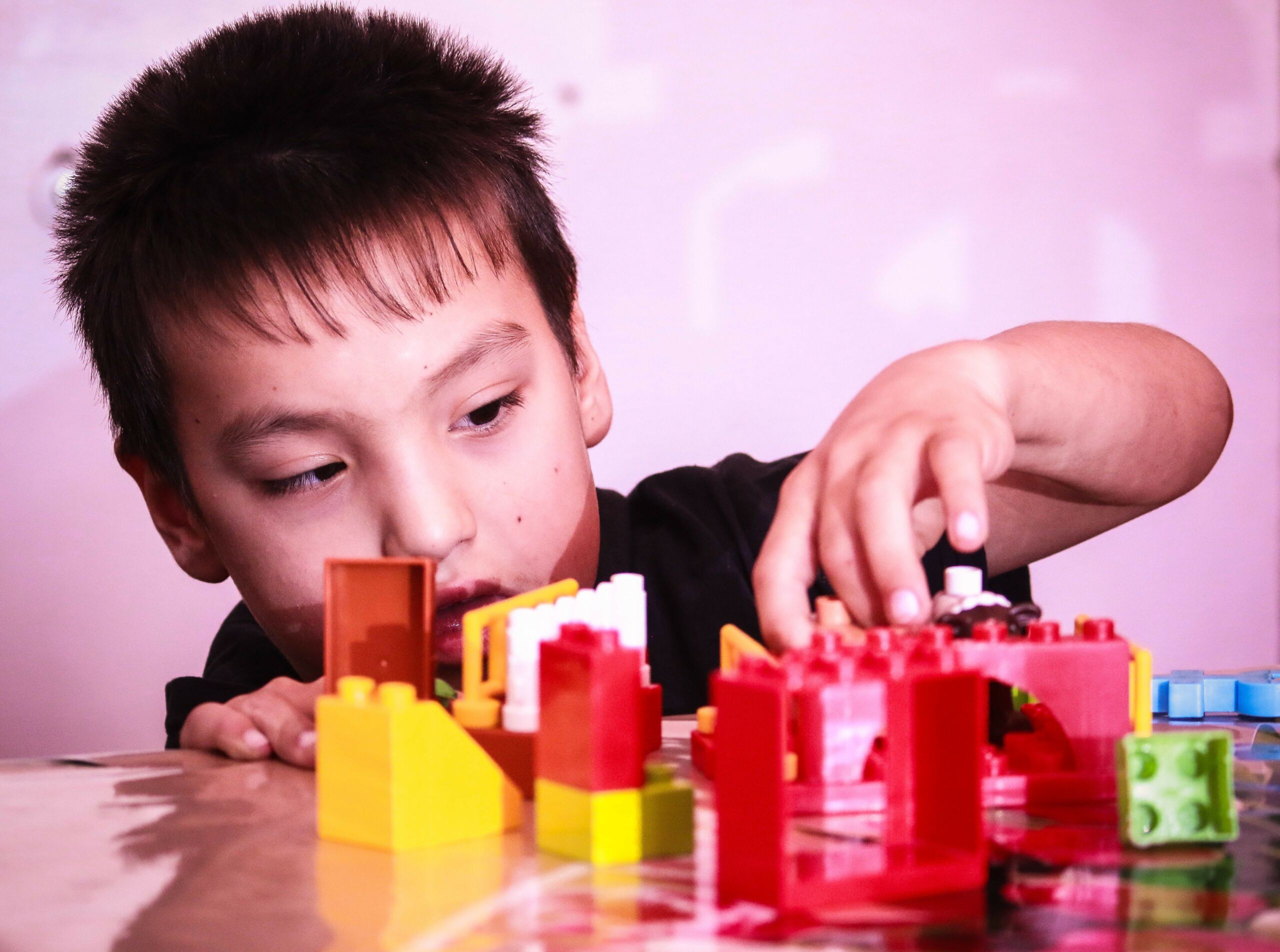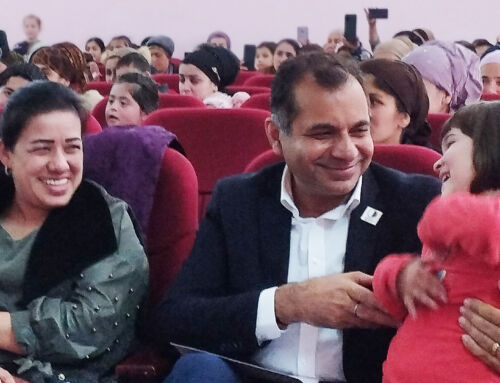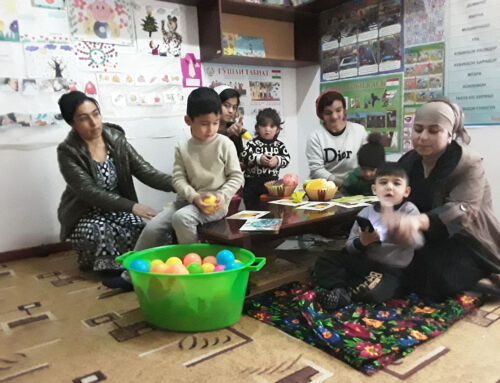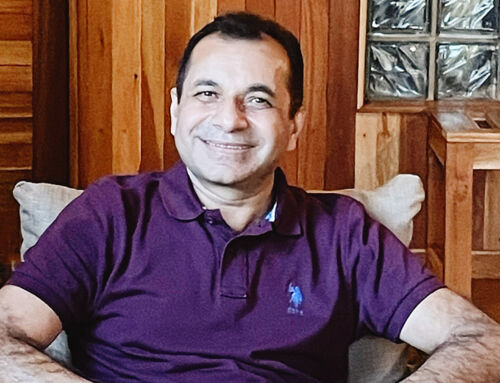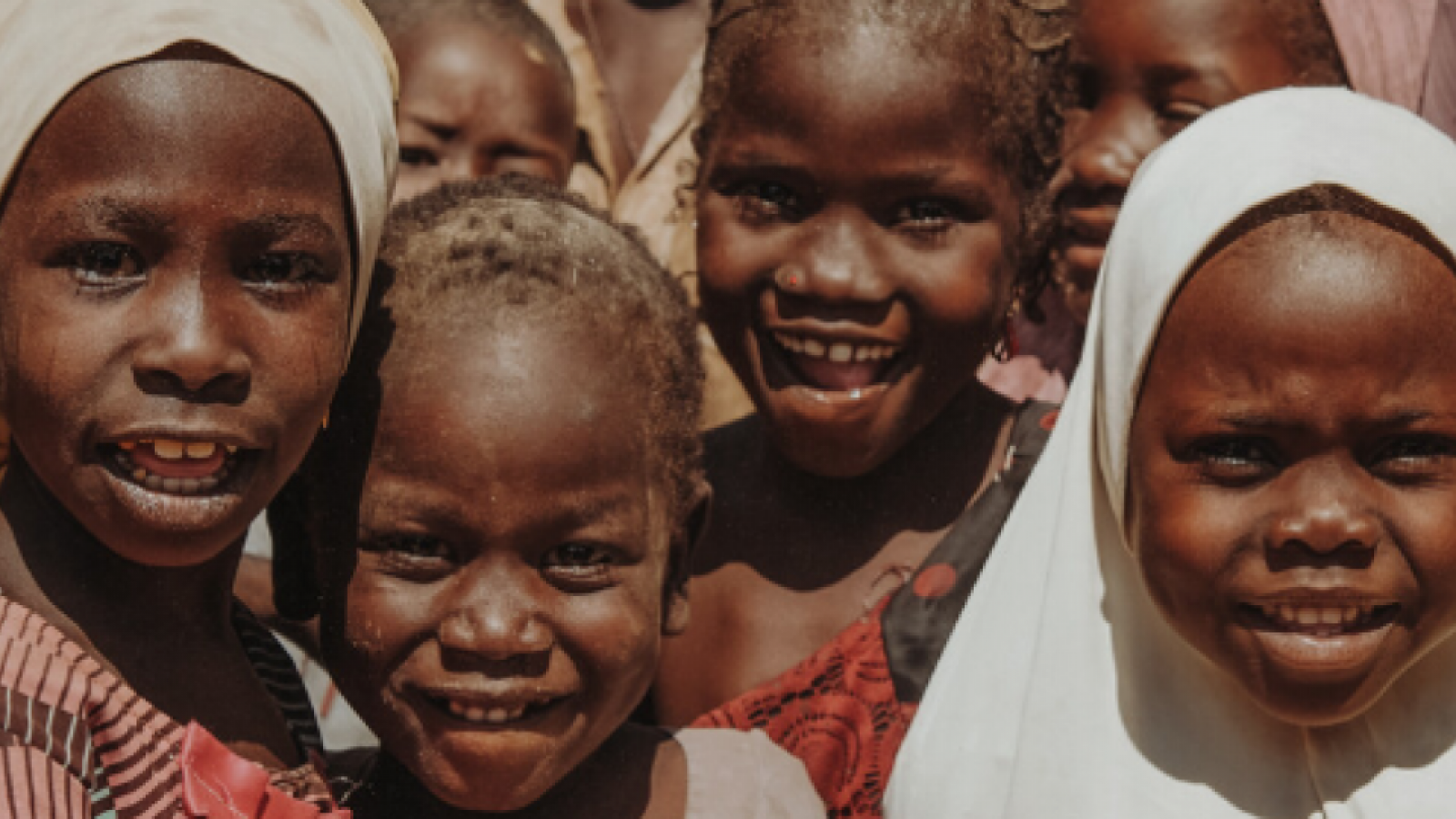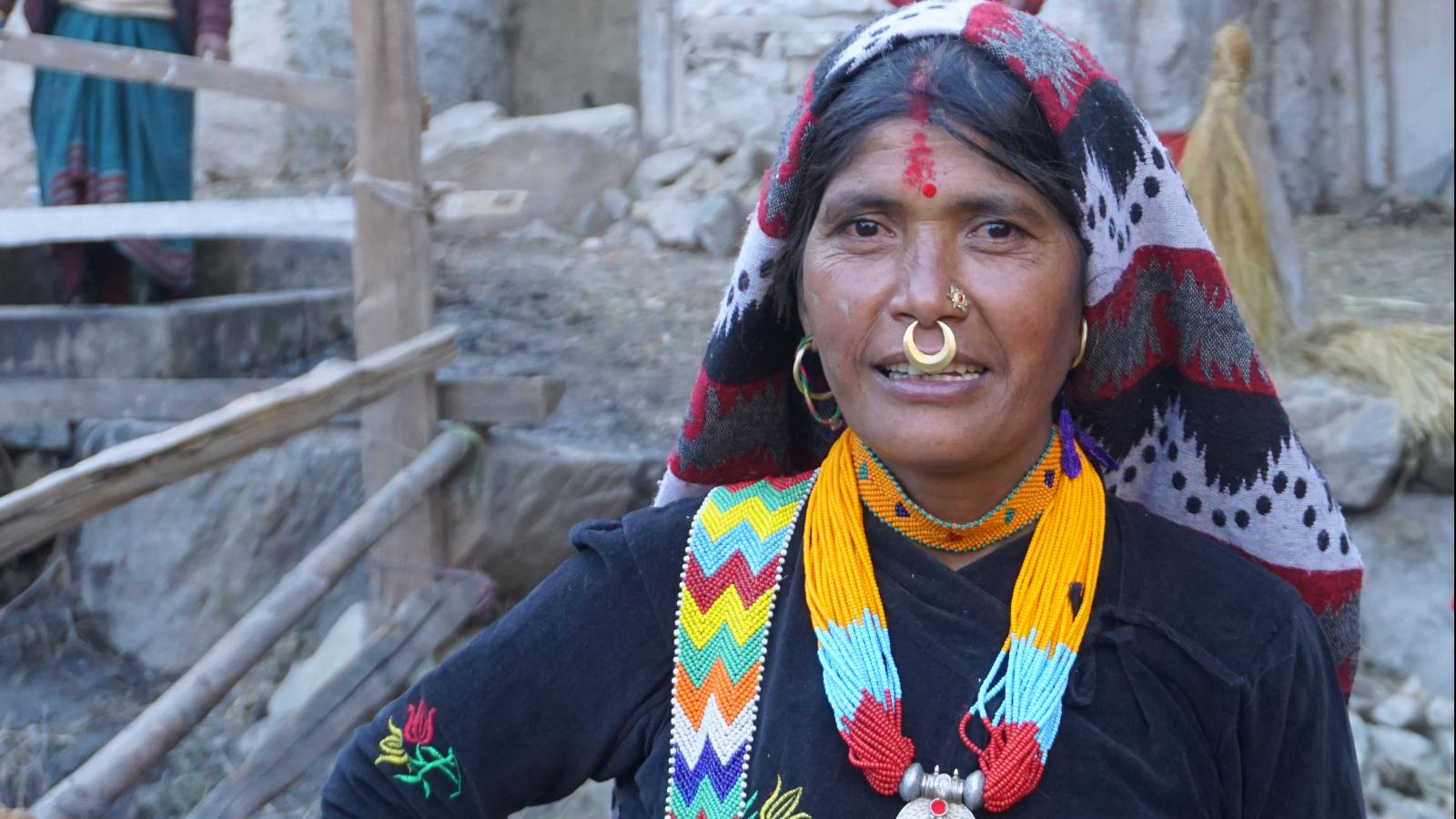‘Defective humans’ – this is how people with disabilities were perceived in the Soviet Union. This attitude still exists in Tajikistan, the poorest of the former Soviet republics, but Mission East is working to change it.
By Line Højland and Kim Wiesener, Communications Officers
In many Tajik villages, children with disabilities are almost invisible. This does not at all mean that they do not exist. On the contrary, many such children are born in this poor country in Central Asia. But here, just as in many other former Soviet republics, giving birth to a child with disability is considered extremely shameful.
Many people believe that it is their own fault, and ’weakness’ is frowned upon. Many children are kept behind closed doors to avoid the disapproving gaze of the neighbours. The children are typically not invited to weddings and local festivities. Even within the family, they risk being excluded from common meals.
Consequently, the child grows up in isolation and does also not receive the necessary treatment. This not only applies to serious disabilities, but also ailments like a cleft palate or epilepsy that, if treated properly, can be alleviated.
Change in attitude
In such situation, parents are left powerless – as long as they are alone. Since 2008, Mission East has assisted Tajik children and youth with disabilities as well as their parents. Slowly, but surely, attitudes in the population are changing.
Parents gather in groups and are being informed about basic human rights. These also apply to children with disabilities. The parents feel empowered to step forward and speak on behalf of their children. A Mission East project has enabled parent groups to visit Armenia together with Tajik officials to study the experiences of that country’s school system.
Mission East has worked for disability rights in Armenia for almost 20 years and has played a role in making the country’s schools more inclusive for children with disabilities. After the trip, an official from Kulob in the southern part of Tajikistan declared that it had been very useful to gain an insight into inclusive education in Armenia. In his region, schools are now planning to follow the Armenian example for the benefit of children with disabilities.
Part of daily life
In more and more places in Tajikistan children with disabilities are now emerging from the shadows to become part of everyday village life. It turns out that – once the silence is broken – neighbours, classmates and other villagers are happy to get to know the children that previously lived behind closed doors.
When children with disabilities receive help, it not only benefits themselves, but their families. The children are able to take care of themselves and do domestic chores which is important in poor families.
————————————————————————————————
A new chance for Sobina
A cleft palate prevented Sobina from going to school. But at the Mission East daycare centre she can catch up.
Sobina, a slender girl of 13, was born with a cleft palate. It is almost invisible, but nevertheless, it has had a serious effect on her life. Her father abandoned the family, because several of Sobina’s siblings also have disabilities, and he thought it was their mother’s fault. Sobina does not go to school, but takes care of her younger siblings at home.
Sobina has started to attend a daycare centre for children with disabilities, which is supported by Mission East. At the centre, she is working on improving her reading skills. She is old enough to enter seventh grade, but her reading skills only match third grade, so she needs to catch up.
At the daycare centre, the children learn everyday skills. When possible, the parents are involved in the activities. It is important to show them that their children are often just as able as children without disabilities.
————————————————————————————————-
“Here I will learn everything”
Three Tajik girls who can neither hear nor speak have found their own way to express themselves.
Farishta, Zanjira and Parvina like sewing – and they do it well. At a Mission East supported rehabilitation centre for children and youth with disabilities in the city of Kulob, the three teenage girls are making pillows, lace and embroidery. They have received training and have become even better at sewing.
For 17-year old Zanjira, the centre presents a welcome change from an otherwise monotonous life: ”It is very boring to be at home, I am all alone, so I have persuaded my father to bring me here where I can be together with the other girls,” she said with the help of an employee at the centre who understands her sounds and the basic sign language she has been taught here.
Farishtha, who is also 17, has a plan with her sewing: “Here I will learn all the things that a girl needs to learn about sewing, and then I will get married because I have good skills.”

